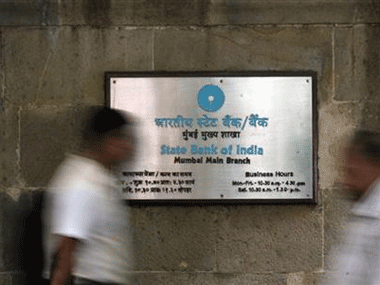‘Should public sector banks be privatised?’ is a question that is being thoroughly debated these days. Arguments have been offered from both sides. Those against the idea of public sector banks (PSBs) being privatised like to say that private sector banks also make bad lending decisions and end up with bad loans. Of course, that is true. In the business of banking, some loans are bound to go bad. A bad loan is essentially a loan on which the repayment has not been made for 90 days or more. Nevertheless, the more important point is what proportion of loans have gone bad. As of 31 March, 2017, the total bad loans of public sector banks stood at Rs 6,41,057 crore. In comparison, the total bad loans of private sector banks stood at Rs 73,842 crore. Hence, the bad loans of private sector banks amounted to around 11.5 percent of bad loans of public sector banks. [caption id=“attachment_4241071” align=“alignleft” width=“380”] Representational image. Reuters.[/caption] But just looking at bad loans in isolation isn’t really the correct way. We also need to look at the total advances or loans of these banks. As of 31 March, 2017, the total advances of public sector banks stood at Rs 55,57,232 crore. The total advances of private sector banks stood at Rs 22,19,563 crore, or around 40 percent of advances of public sector banks. If the private sector banks were doing as badly as public sector banks on the bad loans front, their bad loans should also have been around 40 percent of the total bad loans of public sector banks. But that as we saw is clearly not the case. The bad loans of private sector banks are at 11.5 percent of the bad loans of public sector banks. This basically means that the private sector banks operate much more efficiently than public sector banks. Hence, the argument that public sector banks should not be privatised because private sector banks also accumulate bad loans, doesn’t really hold. But that isn’t the major point that I wanted to make in this column. What people who suggest that public sector banks should not be privatised do not realise is that the banking sector in India is getting privatised on its own, even though the government continues to own 21 public sector banks. Take a look at Table 1.
 Now what does Table 1 tell us? As on 31 March, 2012, the total advances of private sector banks were around a fourth of the total advances of public sector banks. By 31 March, 2017, that ratio had increased to 40 percent. This basically means that as public sector banks go slow on lending because of their bad loans, the total loans given out by private sector banks are growing at a much faster pace. Hence, as far as the overall banking sector is concerned, it is getting privatised, irrespective of what the experts and the government think about privatising public sector banks. In fact, the situation is not very different from other sectors which the government has opened up for private companies over the years. Take a look at what happened to the airlines sector. Air India and Indian Airlines (before they were merged) had 100 percent of the market (along with Vayudoot, another government owned entity). Now Air India (AI) (in which the erstwhile Indian Airlines has been merged) has a 13.8 percent share of the market. This has benefited consumers tremendously. Similar stories of privatisation, without the government privatising public sector enterprises, have played out in the telecom and pharmaceutical sectors, respectively, and even in education, to some extent. The telecom sector had two players, BSNL and MTNL. Over the years, the market share of these two government owned companies has come down dramatically, while the government continues to own them. Over the years, various ministers have referred to public sector enterprises as family jewels. The trouble is that in sector after sector, these family jewels have lost their luster and a tremendous amount of value has been destroyed. Along similar lines, public sector banks have reached a stage where it will be difficult to find buyers for many of these banks, even if the government makes a decision to privatise them (which in the first place seems very difficult). The 1997 Committee on Banking Sector Reforms (better known as the second Narasimham Committee) had recommended that the government reduce its holdings in PSBs to 33 per cent and, in the process, give increased autonomy to these banks. The Committee had also recommended no further recapitalisation of public sector banks by the government. But that is not how things have eventually turned out. And more than two decades later, now we have reached a stage where most public sector banks are as dead as a dodo. (Vivek Kaul is the author of India’s Big Government—The Intrusive State and How It is Hurting Us)
The banking sector in India is getting ‘privatised’ on its own, even though the government continues to own 21 public sector banks.
Advertisement
End of Article


)

)
)
)
)
)
)
)
)



